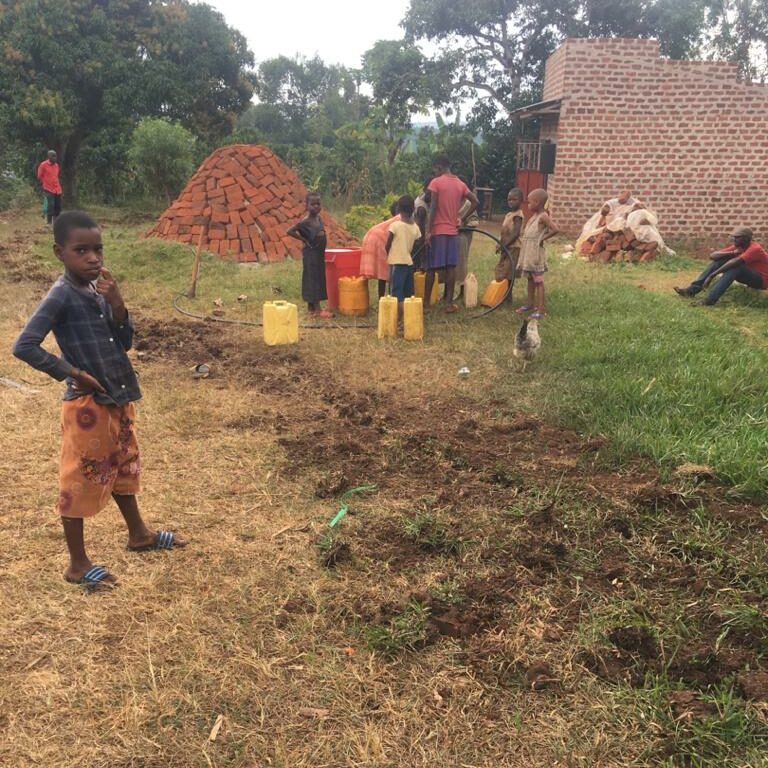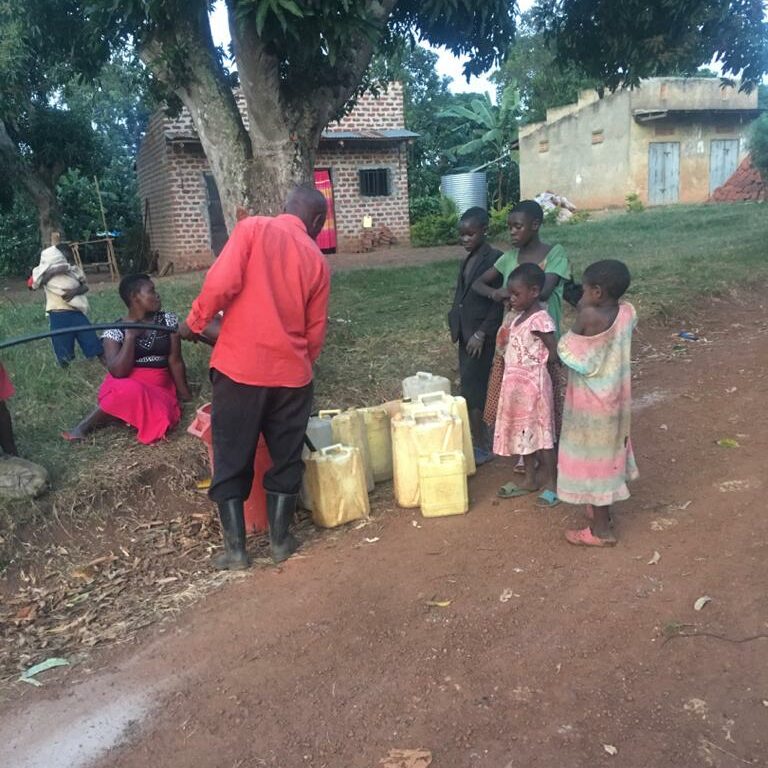A few months back we reported about the water project that John Njendahayo and a team of vocational training students set up, to enable easy access to clean water for 28 homes in the nearby community. Well, we are pleased to report that, despite Covid restrictions, the project has recently expanded to reach a neighbouring village. Read on for more details!
John Njendahayo is the founder of CRED Partner, Nkuru Nziza Foundation, and one of the key projects of that Foundation is the Nkuru Business and Vocational College that is located in a village in rural Mityana. The ethos of the college is very much one of being a college in the community, and for the community, and this can be seen in the various ways in which it not only provides top quality vocational training, but it also offers a range of facilities for the benefit of the local community.
So there is a hair salon, a cafe / restaurant, catering business, access to adult education, a mobile money business and a tailoring service all available for the local people to utilise. And there is the Uwero water project.
Uwero means ……. in Uganda, and this project has been set up to ensure that spare water from the College doesn’t sit idle, but instead is piped to a number of different homes and properties where it can bring blessing and help to others. Some of those who have the piped water are elderly, and were struggling to walk the distance to the community bore hole. Some use the water to generate income either through direct sales, or by improving a crop or poultry business that is dependent on reliable water supply. All the beneficiaries have to pay for the water that they use, but at significantly less price than if they were having to buy in water, or pay someone to go and get their water for them.
And its not just about the price – it’s also about health and safety: improved health through having a ready supply of clean water to drink, and not having to do the back-breaking chore of carrying water long distances; and improved safety for the women and girls who were very vulnerable to attack when carrying heavy cans of water back from the water hole at the beginning or end of the day.
Another significant benefit is the time saved – as a result of having water readily available, school children don’t have to do the trek to fetch water before school, and therefore can get to school on time. And mothers don’t have to lose hours of their day on the water walk, and instead can focus on other tasks that still need to be done in rural subsistence living.
Until recently, all the beneficiaries were in the one village of Bakijalula, where the college is situated. But now the student team have been putting their building and construction skills into action and have laid piping to the next village along, so that another community can benefit. Prior to the Uwero water project reaching the village, members of this community had to go down a steep hill to the nearest bore hole, and then carry the jerricans full of water back up the hill to home. Now that journey is no more, and the members of that community can also enjoy the benefits of having safe, clean water close to hand.






